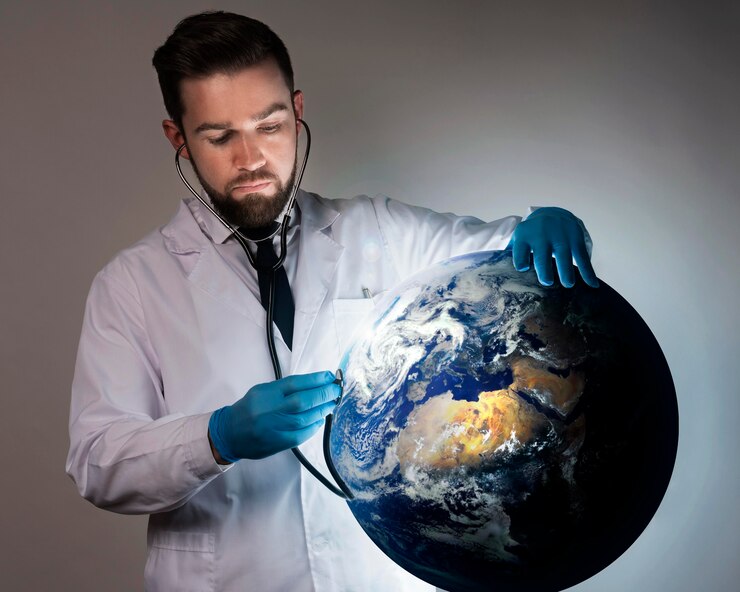Who is the Most Powerful Doctor in the World?

In a world where the complexities of medicine continue to evolve, the title of “the most powerful doctor in the world” is not easily defined. It encompasses not just individual prowess but also the influence, impact, and contributions a doctor makes to the field of medicine and society at large. This article will explore various facets that might contribute to this designation, examining renowned doctors who have left significant marks on the medical landscape and evaluating the criteria that can help determine who truly holds this title.
Defining “Power” in Medicine
Before identifying individuals, it’s essential to define what “power” means in the context of medicine. Power can manifest in several ways:
- Influence: The ability to shape policies, research agendas, or public health strategies.
- Expertise: Mastery of medical knowledge, innovative techniques, or pioneering research that pushes the boundaries of medicine.
- Philanthropy: Commitment to improving healthcare access and outcomes through charitable actions or foundations.
- Leadership: Holding significant positions within health organizations or governmental bodies that dictate health policies.
With this understanding, we can explore who may qualify as the most powerful doctor in the world.
Notable Candidates
1. Dr. Tedros Adhanom Ghebreyesus
As the Director-General of the World Health Organization (WHO), Dr. Tedros Adhanom Ghebreyesus holds one of the most influential positions in global health. His role during the COVID-19 pandemic showcased his ability to mobilize international resources, coordinate responses among nations, and advocate for equitable access to vaccines. Under his leadership, WHO has made strides in addressing health disparities, launching initiatives like the COVAX program to ensure that low- and middle-income countries have access to vaccines.
2. Dr. Anthony Fauci
A prominent figure in American medicine, Dr. Anthony Fauci has served as the director of the National Institute of Allergy and Infectious Diseases (NIAID) since 1984. His expertise in infectious diseases has positioned him as a trusted advisor during multiple health crises, including HIV/AIDS and COVID-19. His influence extends beyond the laboratory; through public appearances and policy advising, he has shaped national and international health responses. Fauci’s commitment to science-based decision-making has made him a pivotal figure in public health.
3. Dr. Paul Farmer
Co-founder of Partners In Health (PIH), Dr. Paul Farmer dedicated his life to improving healthcare for impoverished communities worldwide. His innovative approaches to public health, focusing on social justice and the social determinants of health, have transformed healthcare delivery in some of the world’s most challenging environments. Farmer’s work exemplifies the power of compassion combined with medical expertise, emphasizing that access to quality healthcare is a fundamental human right.
4. Dr. Atul Gawande
As a surgeon, author, and public health researcher, Dr. Atul Gawande has significantly impacted how healthcare systems function. His writings, including “Being Mortal” and “The Checklist Manifesto,” have changed the way healthcare providers think about patient care and safety. Through his role at Ariadne Labs, Gawande has worked to implement systems that enhance healthcare delivery, making him a powerful advocate for change in the medical field.
5. Dr. Gro Harlem Brundtland
A former Prime Minister of Norway and Director-General of the World Health Organization, Dr. Gro Harlem Brundtland is a renowned figure in global health and sustainable development. Her leadership has influenced health policies at both national and international levels, particularly in advocating for a comprehensive approach to health that includes environmental and social factors. Brundtland’s vision for a healthier world has left a lasting legacy, highlighting the interconnectedness of health and sustainability.
Criteria for Assessing Power
While the doctors mentioned above have made significant contributions, determining who is the “most powerful” doctor requires a closer look at certain criteria:
Impact on Public Health
A powerful doctor should have a tangible impact on public health. This can be measured by their contributions to medical research, public health policies, or direct interventions that lead to improved health outcomes for communities or populations.
Innovation and Research
Innovative research can change the landscape of medicine. Doctors who push the boundaries of current knowledge, develop new treatments, or find solutions to pressing health challenges demonstrate considerable power.
Advocacy and Leadership
Effective leadership is vital for enacting change. Doctors who advocate for policy reforms, drive healthcare initiatives, or lead organizations in a way that influences health systems can wield significant power.
Global Reach
In an interconnected world, the ability to influence global health is crucial. Doctors who operate on international platforms or collaborate with global health organizations can impact health beyond their local communities.
The Role of Doctors in Society
Doctors play a vital role in society that goes beyond individual patient care. They are educators, advocates, and leaders in public health. Their influence can be felt in various ways:
Educating the Public
Doctors have the responsibility to educate the public on health issues, preventive measures, and treatment options. Through outreach, community programs, and social media, they can disseminate important information that can lead to healthier behaviors and improved health outcomes.
Shaping Health Policy
Doctors often engage in policy-making processes, lending their expertise to shape legislation that impacts healthcare access, funding, and quality. Their insights are invaluable in crafting policies that improve public health systems.
Conducting Research
Research is fundamental to the advancement of medicine. Doctors who lead research initiatives contribute to new knowledge, techniques, and treatments that can revolutionize healthcare practices.
Providing Compassionate Care
At the heart of medicine is the doctor-patient relationship. Doctors who provide compassionate care can positively influence the well-being of their patients, fostering trust and encouraging better health outcomes.

Conclusion: Who is the Most Powerful Doctor?
Determining who is the most powerful doctor in the world is subjective and complex. It depends on the criteria you prioritize—be it influence, innovation, advocacy, or global impact. Figures like Dr. Tedros, Dr. Fauci, Dr. Farmer, Dr. Gawande, and Dr. Brundtland exemplify the various dimensions of power within the medical field.
Ultimately, the most powerful doctor may not be a single individual but rather a collective of dedicated professionals striving to make the world a healthier place. Their combined efforts—whether through leadership in public health, groundbreaking research, or compassionate care—contribute to the betterment of society.
As we continue to navigate the challenges of global health, it’s essential to recognize and support the efforts of these powerful figures in medicine. By doing so, we not only honor their contributions but also empower future generations of doctors to carry the torch of healing, advocacy, and innovation. In the end, the true power of a doctor lies in their ability to effect change, uplift communities, and inspire hope for a healthier future.

